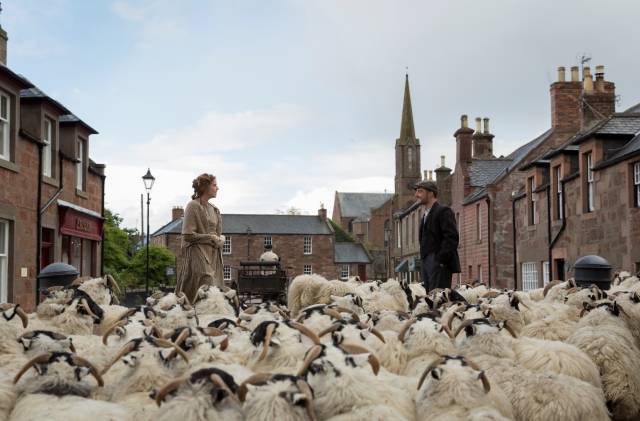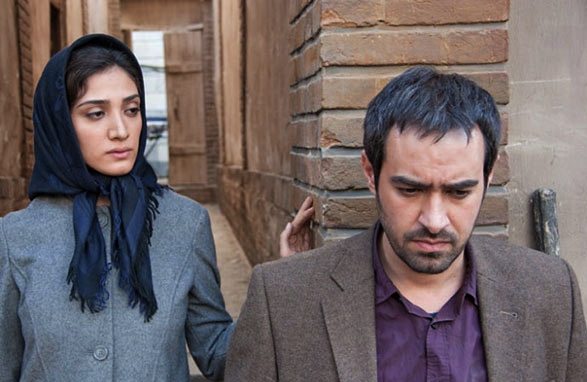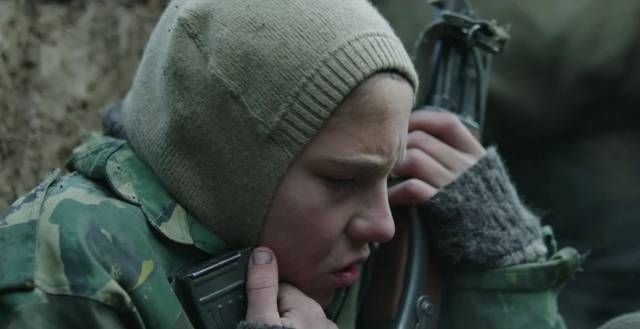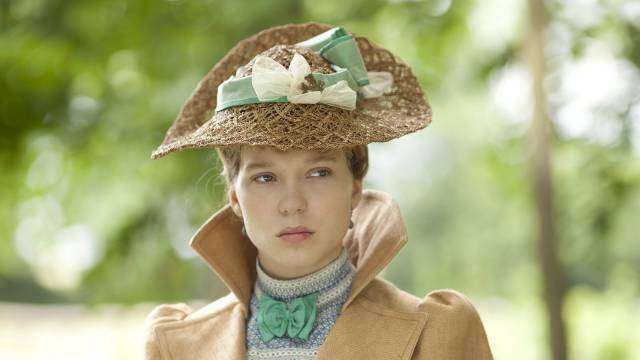
Film Comment Selects, the cinema magazine’s annual festival turns 16 this year, and as any adolescent its tastes seem to be at their most deliciously eclectic. This year sees the US premiere of a new Terence Davies film based on a beloved Scottish novel, a sidebar of restored works by Andrzej Żuławski (who also has a new film in the festival, called Cosmos), a tribute to the recently deceased Chantal Akerman, a meta double bill by Alan Schneider and Ross Lipman, and a spotlight on the master of kickass: Charles Bronson. While it can be argued that every single film in the festival is essential, these five titles earned our highest praise:
 Sunset Song (Terence Davies, 2015)
Sunset Song (Terence Davies, 2015)
Davies’ adaptation of Lewis Grassic Gibbon’s 1932 novel sees the auteur doing what he’s always done best: making grand melodramas about larger than life women. This time around he centers his attention, and his camera, on Chris Guthrie (model turned actress Agyness Deyn in her best performance to date) a Scottish farm-girl trying to set herself free from the impositions of the men in her life. Going from sensual to brutal in scene to scene, the film is a rousing call for female empowerment that reminds us how much we’ve to go when it comes to equal rights. The sweeping cinematography by Michael McDonough, and the revelatory work by Deyn make this film one for the ages. - Jose Solis
 The Paternal House (Kianoush Ayari, 2012)
The Paternal House (Kianoush Ayari, 2012)
Keeping in spirit with Davies’ work, this Iranian entry begins with a brutal “honor killing” that sets in motion a series of tragedies that span over sixty years. Sensitively directed by Kianoush Ayari, the film takes a critical look at the perpetuation of barbarian customs, while working as a fine intergenerational drama. A ghost story without any supernatural elements, it’s a powerful testament to the hell that is to live with regret and guilt. When some of the characters refer to a location in the film as “a graveyard”, they might very well be talking about a collective conscience that allowed much to be done and remained silent. - Jose Solis
 No One’s Child (Vuk Rsumovic, 2014)
No One’s Child (Vuk Rsumovic, 2014)
Based on a true story, Serbian director Vuk Rsumovic's courgaeous debut film tells the story of a tameless boy found in the mountains of Bosnia and Herzegovina. With no trace of his origins, Haris (an impressive Denis Muric) is taken to an orphanage where he is forced to act like the rest of the children who ridicule him for his perpetual barbaric nature. Proficiency lies in the patience of Rsumovic’s storytelling, attentive to the significances of each moment, withstanding all urge to force insight or cheap thrills. The film operates on the tenderness and anguish of the lamentable protagonist, and Muric's portrait of Haris lacks judgement and deceit, holding Rsumonvic's vision up to its potential. The binding trust between the two artists makes for a captivating tale of unconventional boyhood. - David Knuckles
One hundred years after WWI and we’re still trying to figure out what it was all about (something that can be said about every war actually) and few times has a film been as blatantly anti-war as Odoul’s majestic The Fear. Told from the point of view of a young French soldier (wonderfully played by Nino Rocher) who enlists with the hopes of making a difference and dreams of patriotism, only to end quite disappointed with what he sees and goes through, the film spares no horror or disillusion, while avoiding gore and surprisingly remaining beautiful. Relying heavily on narration to evoke the idea of a disembodied spirit, the film excels at both the aesthetic and the sociopolitical, it’s a much needed cry for change, far removed from what once was quiet on the front. - Jose Solis
 Diary of a Chambermaid (Benoît Jacquot, 2015)
Diary of a Chambermaid (Benoît Jacquot, 2015)
In this new take on a 1900 novel, Benoît Jacquot’s Diary of a Chambermaid imitates the rhythms of service: static and brooding punctuated by rapid transitions that somehow end up going nowhere. Jacquot’s Rückenfigur camera angles on the protagonist emphasize the mutually exploratory role of the viewer and the protagonist. But said protagonist, the young, comely maidservant Célestine (Léa Seydoux), who swings from slit-eyed hostility to elegantly gap-toothed smiles, is a stranger only to each post but not at all to the world she inhabits. The film explores her wary navigation of power through sexuality and sexuality from power in a story intrinsically about class and dignity. Jacquot makes use of the act of flirtation as a sort of ‘play within a play’, giving a new cinematic angle on this story that has already been treated with stiff moralization by Jean Renoir in 1946 and Buñuel‘s fetishizing gaze in 1964. - Athena Bryan
For more information and tickets to Film Comment Selects 2016 visit The Film Society of Lincoln Center's website.